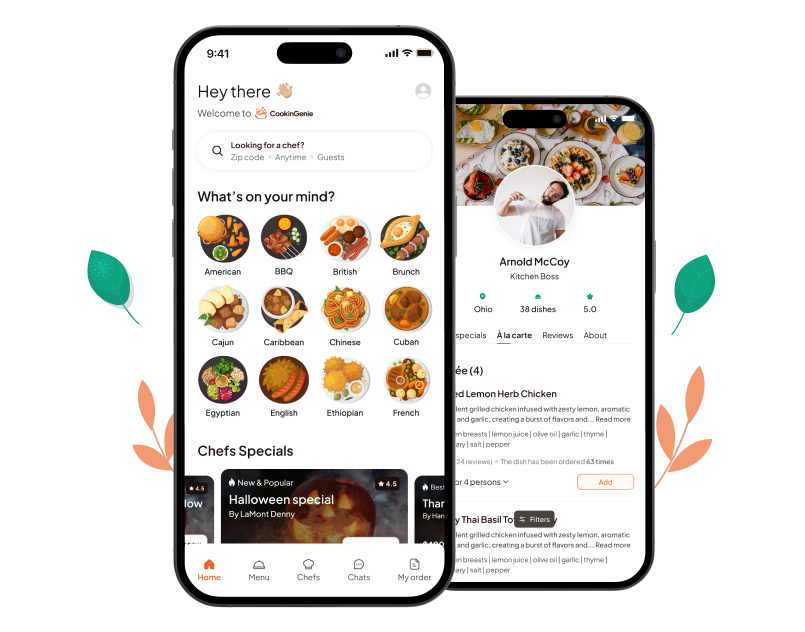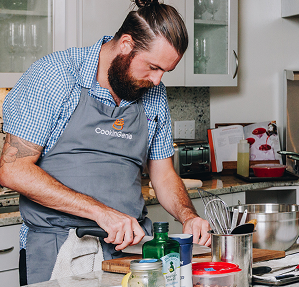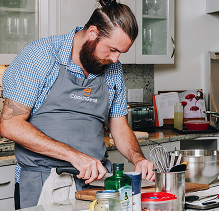Exploring the Flexitarian Diet: What You Need to Know
Are you tired of restrictive diets that leave you feeling deprived and unfulfilled? If so, you may be interested in the Flexitarian Diet, a lifestyle that offers a more flexible approach to healthy eating.
Unlike other diets that require you to give up entire food groups, the Flexitarian Diet is all about balance and moderation. By focusing on plant-based foods while allowing for some animal products in moderation, you can enjoy various delicious and nutritious foods without sacrificing your health goals.
But the Flexitarian Diet is more than just a way of eating – it’s a lifestyle that promotes sustainability and environmental consciousness. By reducing your consumption of animal products, you can help reduce your carbon footprint and contribute to a more sustainable future.
In this blog, we’ll deep dive into the Flexitarian Diet and explore everything you need to know, from its benefits for your health and the planet to tips for following the diet and incorporating more plant-based foods into your daily routine.
So, whether you’re a seasoned plant-based eater or just curious about how to make healthier, more sustainable choices, read on to discover the power of the Flexitarian Diet.
About the Flexitarian Diet
The Flexitarian Diet is a plant-based diet that emphasizes the consumption of whole, nutrient-dense foods while allowing for the occasional consumption of meat and animal products in moderation. Unlike other diets that eliminate entire food groups, the Flexitarian Diet offers a more balanced and sustainable approach to healthy eating.
Principles Behind the Flexitarian Diet
The principles behind the Flexitarian Diet are straightforward to follow. Here are some of the key principles that make up this lifestyle:
- Eat mostly fruits, vegetables, whole grains, legumes, nuts, and seeds: These are the foundation of the Flexitarian Diet, providing a rich source of essential nutrients, fiber, and antioxidants that support overall health.
- Reduce the intake of animal products: While animal products can be a valuable source of protein and other nutrients, consuming too much can lead to health problems. The Flexitarian Diet encourages reducing the intake of animal products such as meat, poultry, fish, and dairy.
- Eat less processed foods and sugar: Processed foods and sugar can be detrimental to health, leading to inflammation, weight gain, and other health problems. The Flexitarian Diet encourages reducing the intake of these foods to support optimal health.
- Choose healthy fats such as avocado, nuts, seeds, and olive oil: Healthy fats are essential to a healthy diet, providing the body with energy and supporting overall health. The Flexitarian Diet emphasizes choosing healthy fats such as avocado, nuts, seeds, and olive oil.
Benefits of the Flexitarian Diet on Health and the Planet
The benefits of the Flexitarian Diet go beyond just the three mentioned in the previous content. Here are some additional benefits to consider:
- Improved Gut Health: The Flexitarian Diet emphasizes plant-based foods such as fruits, vegetables, and whole grains, which are fiber-rich. This high-fiber diet can help promote a healthy gut by feeding the beneficial bacteria in the digestive tract. A healthy gut microbiome is associated with a lower risk of inflammation, digestive issues, and certain chronic diseases.
- Lower Healthcare Costs: The health benefits of the Flexitarian Diet can result in lower healthcare costs. A study found that people who followed a plant-based diet had lower healthcare costs than those who followed a diet that included animal products. This is because plant-based diets are associated with a lower risk of chronic diseases, which can be costly.
- Improved Mood and Mental Health: A plant-based diet helps improve mood and mental health. Plant-based foods, such as omega-3 fatty acids, B vitamins, and antioxidants, are rich in nutrients that support brain health. Additionally, a study found that people who followed a plant-based diet had lower levels of depression, anxiety, and stress than those who consumed more animal products.
- Variety of Delicious Foods: The Flexitarian Diet provides various delicious and nutritious foods. You can discover new recipes and ingredients you may not have tried before by focusing on plant-based foods. The Flexitarian Diet encourages people to experiment with new flavors and cooking techniques, making it a fun and exciting way to eat.
- Improved Heart Health: A plant-based diet, like the Flexitarian Diet, can help reduce the risk of heart disease by lowering cholesterol levels and blood pressure. The high fiber content in plant-based foods also helps to improve heart health.
- Weight Management: Eating a diet rich in plant-based foods can help with weight management because they are often lower in calories and higher in fiber, which can help people feel full and satisfied.
- Reduced Risk of Chronic Diseases: The Flexitarian Diet is rich in vitamins, minerals, and antioxidants that can help reduce the risk of chronic diseases such as type 2 diabetes, obesity, and certain types of cancer.
- Environmental Sustainability: The Flexitarian Diet promotes sustainability by reducing the consumption of animal products with a high carbon footprint. This can help to reduce greenhouse gas emissions and contribute to a more sustainable future.
Following the Flexitarian Diet
The Flexitarian Diet is a flexible way of eating that encourages you to consume more plant-based foods while allowing for the occasional consumption of animal products in moderation. Here are six tips on how to follow the Flexitarian Diet and achieve a healthier and more sustainable lifestyle:
- Gradual Transition: Switching to a plant-based diet overnight can be challenging, especially if you’re new to it. Therefore, start slowly and gradually incorporating more plant-based foods into your meals. For example, you can begin with Meatless Mondays or have one vegetarian meal per day.
- Emphasize Whole Foods: To get the most nutritional benefits from the Flexitarian Diet, focus on whole foods such as fruits, vegetables, whole grains, legumes, nuts, and seeds. These foods are rich in vitamins, minerals, and fiber, which will help you feel full and satisfied.
- Moderate Animal Products: The Flexitarian Diet allows for small amounts of animal products, but it’s essential to choose high-quality, lean options and consume them in moderation. Instead of chicken or beef, you can try plant-based alternatives for your favorite animal-based meals, such as tofu or tempeh.
- Meal Planning: Meal planning is crucial to ensure you get all the necessary nutrients and consume a balanced diet. Make a meal plan for the week and include a variety of plant-based foods, such as different types of fruits and vegetables, whole grains, and healthy fats.
- Read Food Labels: When shopping, read food labels carefully to ensure you choose healthy, whole foods. Avoid processed foods and those high in sugar. Opt for whole grains, fresh fruits and vegetables, and foods rich in healthy fats.
- Experiment with New Recipes: Finally, get creative in the kitchen and try new plant-based recipes. Countless vegetarian and vegan recipes are available online that are easy to prepare and delicious. Experimenting with new flavors and ingredients can help you discover new favorite foods and keep your meals exciting.
Conclusion
In conclusion, the Flexitarian Diet is not just a diet but a lifestyle that promotes balance and sustainability. It’s a perfect fit if you are looking for a flexible approach to healthy eating and want to reduce its environmental impact. By incorporating more plant-based foods and reducing the consumption of animal products, you can enjoy delicious and nutritious meals while benefiting your health and the planet.
If you find it challenging to plan and prepare meals according to the Flexitarian Diet, consider hiring a personal chef service. Personal chefs can customize meals to your dietary needs and preferences, making it easier to follow the Flexitarian Diet. With their meal planning and preparation expertise, you can achieve your health and wellness goals while enjoying delicious and satisfying meals. So, start your Flexitarian journey today and take the first step towards a healthier and sustainable lifestyle.



 Settings
Settings
 Gift Card
Gift Card Blog
Blog Locate Us
Locate Us










 Home
Home
 Chefs
Chefs
 Chats
Chats
 My Order
My Order



